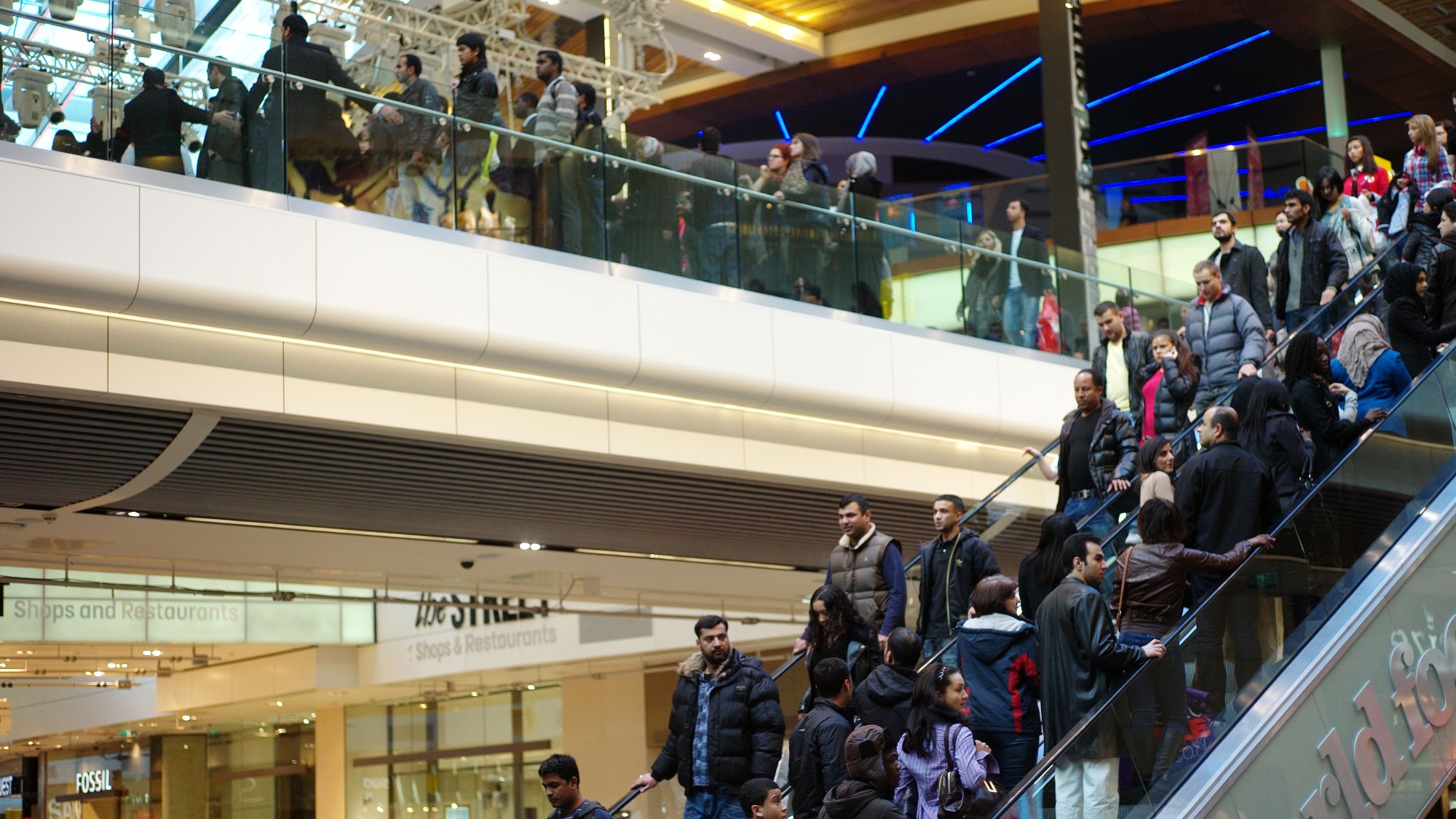Why it's getting harder and harder to leave shopping centres
Expert says escalators are positioned to 'disorientate' shoppers and make them spend more

A free daily email with the biggest news stories of the day – and the best features from TheWeek.com
You are now subscribed
Your newsletter sign-up was successful
If you've ever got lost in a shopping centre you shouldn't beat yourself up about it because they're designed to disorientate you, said an expert.
Escalators are positioned in shops "simply to make people get lost", David Gianotten, of the Office for Metropolitan Architecture, told the Sydney Morning Herald, and this is just one of many tricks used by retail to get you to spend more.
'Smelling salts'
Gianotten, who's been exploring the ways of retail, noticed that there was "always an extra bank of escalators" to divert shoppers so they "spend more money". This was to disorient visitors and "slow them down enough" so they "looked at the merchandise nearby, distracting them from their target", said the newspaper.
The Week
Escape your echo chamber. Get the facts behind the news, plus analysis from multiple perspectives.

Sign up for The Week's Free Newsletters
From our morning news briefing to a weekly Good News Newsletter, get the best of The Week delivered directly to your inbox.
From our morning news briefing to a weekly Good News Newsletter, get the best of The Week delivered directly to your inbox.
During a visit to Westfield Parramatta in Sydney, Gianotten stood by a pair of escalators and noticed another set that went at right angles. "There's always one set that is a little bit outside the circuit, so that [shoppers] feel, 'Oh, where am I now?' I'm disoriented," he explained.
Experts say that "nothing" has "revolutionised shopping" and "cemented" the role of the shopping centre as much as "the invention of the escalator", which was launched in the 1850s to make it "effortless" for customers to reach upstairs floors.
When Harrods introduced them, said London Walks, "nervous customers" were "offered brandy at the top to revive them after their 'ordeal'", or if they were "overcome with joy", they were handed smelling salts.
In the 1940s, a brochure from the Otis company, which manufactures escalators and lifts, said the lift was made for the "man on a mission" who knew what he wanted and where it was located, and then bought it, but an escalator was designed for impulse buys because it "beckoned" a customer, with its "smooth continuous movement" encouraging the "casual shopper to take in the range of goods".
A free daily email with the biggest news stories of the day – and the best features from TheWeek.com
Manipulative tactics
Escalators are not the only feature of the shopping experience carefully designed to part you from your money. Shopping centres rarely have clocks in them and this is for a "manipulative reason", said Metro. The lack of clocks means "time seems to evaporate", so a "twenty-minute in-and-out trip" could "easily turn into an hours-long spending sesh".
It is a "meticulously crafted strategy, deeply anchored in consumer psychology" designed to "extend the duration of your visit and consequently, your expenditure", psychologist Laura Geige told Metro.
The "severe lack of windows" in malls helps make them "feel like an entirely different world", said StartUp Talky, and the car parks are deliberately "intimidating" so by the time you successfully park, you "won't easily want to go back to retrieve your car because of all the architectural challenges involved" which makes you "more likely to shop for a little more time".
It's also "an open secret" that shops and supermarkets "use techniques to entice people into spending more money", said Metro, including making shopping trolleys larger so shoppers can fit more inside and, in an "age-old favourite", it's "quite common for pricier products to be placed at eye level".
Dr Cathrine Jansson-Boyd from Anglia Ruskin University told The Mirror that the most "traditional trick of all" in supermarkets is pumping out the smell of bread – or something that smells like bread. It's "often an artificial scent", she said.
Chas Newkey-Burden has been part of The Week Digital team for more than a decade and a journalist for 25 years, starting out on the irreverent football weekly 90 Minutes, before moving to lifestyle magazines Loaded and Attitude. He was a columnist for The Big Issue and landed a world exclusive with David Beckham that became the weekly magazine’s bestselling issue. He now writes regularly for The Guardian, The Telegraph, The Independent, Metro, FourFourTwo and the i new site. He is also the author of a number of non-fiction books.